Civil War and Other 1800's
Medical College Lecture Tickets & Cards
Medical Ephemera,
Graduation Catalogues, Diplomas, Education Documents, Admission Cards
Page One 'A'
The Medical Education (1819 -
1845) of John Agnew, M.D.
During the 1800's medical doctors who
taught in medical schools or colleges supported their efforts by selling
admission / lecture tickets or cards to their lectures for the semester
or whatever period the lecture series would take. This was how they were
paid and prospective medical students would buy tickets for the lectures
they needed for their course of medical study or to supplement their
continuing education. Both the student and the lecturer / doctor would
normally have signed the lecture ticket for admission to the course.
During the 1800's it was common for doctors and 'surgeons' to attend
only two years of lectures. Medical school was not four years plus
internship and a multi-year residency after four years of college as it
is today. Two years and you were good to go unless you went the
preceptorship route, then you would work for a doctor / surgeon as an
apprentice for a number of years and supplement your education with some
lectures at a medical college.
By example, Jefferson Medical College placed its emphasis on graduation,
not entrance requirements. To receive the M.D. degree, applicants were
required to be: 21 years of age, have attended two one-year courses of
lectures, studied three years with a preceptor, have written a thesis,
and passed an oral or written examination given by the faculty. Only
then would students receive the coveted Pass Notice.
All medical lecture tickets from the 1700' and 1800's are wanted to
purchase by this collector, Douglas Arbittier, M.D..
It's all inter-related on this
site: medical schools sold lecture cards, lecturers who were authors of
books wrote books used at the medical schools, the surgeons who attended
the medical colleges fought in the Civil War, surgeons joined the Army,
the Army bought surgical sets for the surgeon's use, the surgeons taught
at the medical schools after the War, and round and round it goes.
Lecture Ticket Topics:
Physic & surgery, Lectures and theory, Surgery, Medica materia,
Materia Medica, Anatomy and physiology, Chemistry, Surgical anatomy,
Surgical pathology, Operative surgery, Clinical surgery, Military
surgery, Pathology and practical medicine, Medicine and surgery,
Principals practice and operations of surgery, Department of
medicine, Ophthalmology, Dermatology, Nervous diseases, Gynaecology,
Venereal diseases, Laryngology, Obstetrics, Midwifery, Orthopedic
surgery, Comparative anatomy. Lecture tickets, Admission
ticket tickets, School, college, medical cards, matriculation
Lecture Card Collection..:
1a
| 1b
| 2 | 3
| 4
| 5
| 6
| 7
| 8
| 9
|
10 |
11
|
12 |
13
|
14 |
15
|
16
|
17
|
18
|
19 |
20
Click on any image to enlarge
Documentation of the medical
education (1819 - 1845) of John Agnew, M.D.
as contained in his personal writing
desk including some of his personal letters
Dr. John Agnew was
educated at the University of Edinburgh from 1819-1823.
He was one of the first members of the Plinian Society
in Edinburgh (whose most famous member was Charles
Darwin) which was formed by medical students to study
natural history.
The society was founded in 1823 so Agnew was one of its
first members.
Agnew went on to practice medicine for several decades
in Paris.
This small folding lap desk was owned by Dr. Agnew in
the mid 19th century. It has a brass plaque with his
name on it and was thought to be empty when sold at
auction. Amazingly, a secret compartment held an entire
archive of Agnew's life, including medical school
admission tickets, his membership card for the Plinian
society, and multiple admission passes for hospitals in
Paris. These cards were obviously meaningful enough to
Agnew for him to keep them hidden in the desk, and it is
fortunate that we can now display the desk with the
archive of admission cards.
Agnew's son emigrated to the US in the late 19th century
and this desk was passed down in the family. Dr.
Agnew has no ties to the Civil War in America, but his
educational history is comparative to what was available at
the time during the early 1800's.
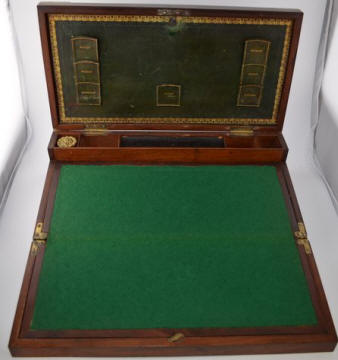
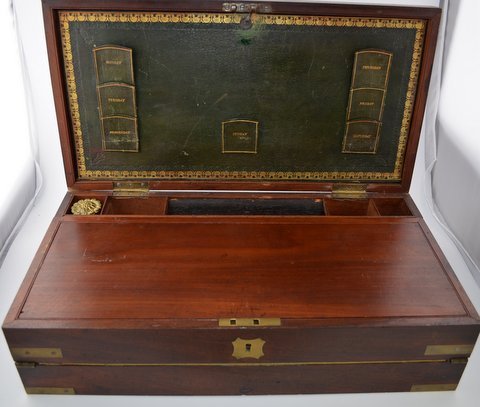
Writing desk of John Agnew, M.D.
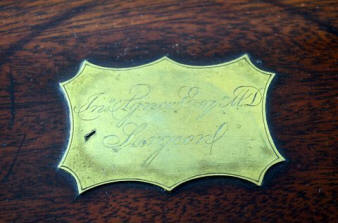
Documents and lecture cards found in the desk of John
Agnew
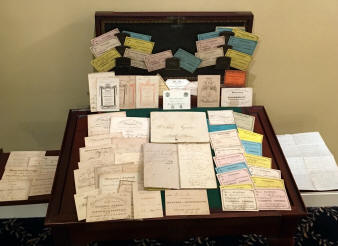
John Agnew's University of Edinburgh
Lecture Tickets (1819 - 1828)
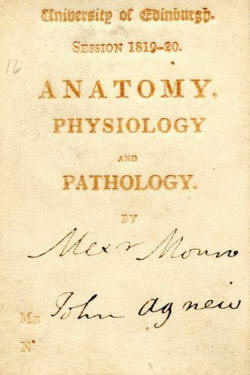
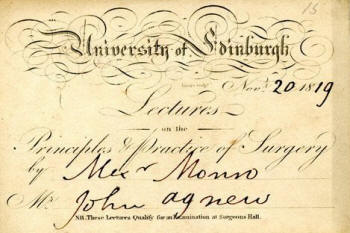
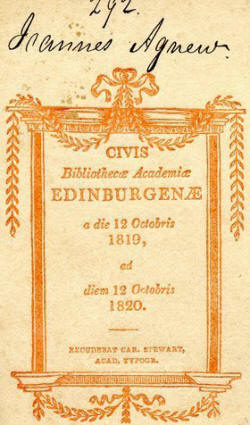
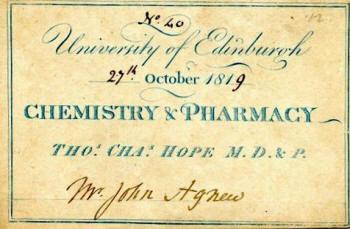
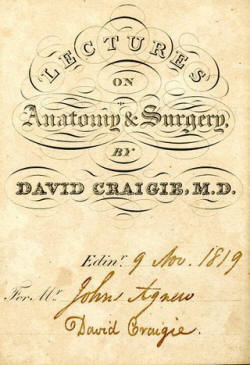
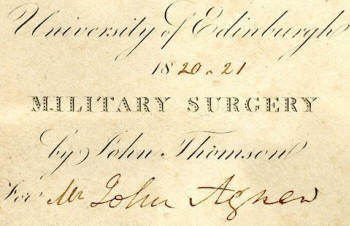
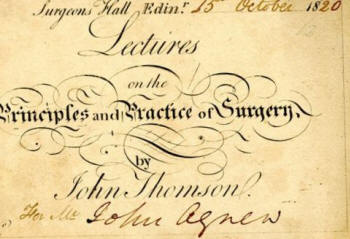
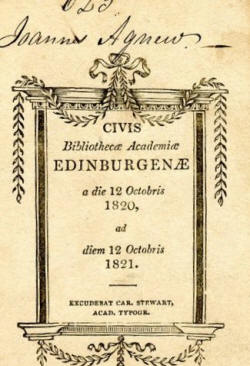
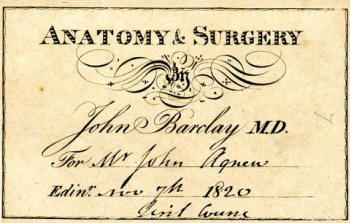
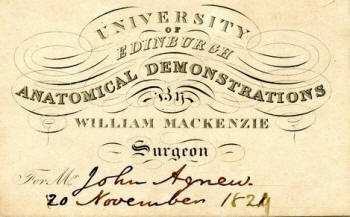
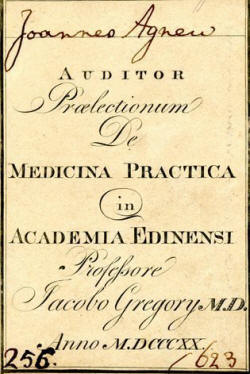
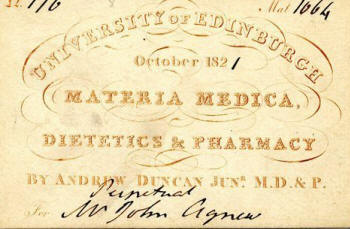
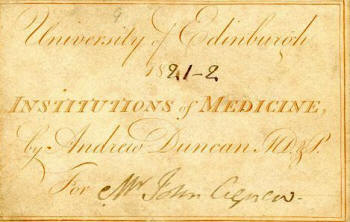
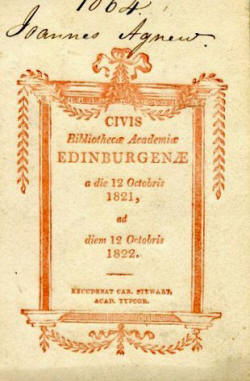
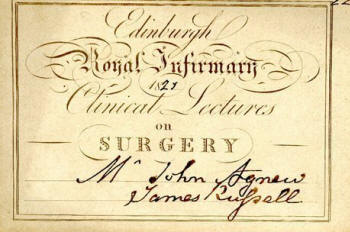
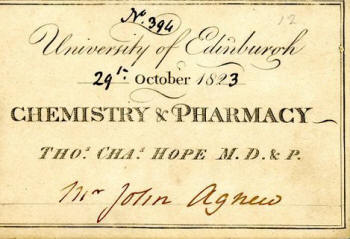
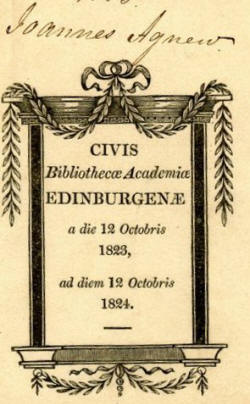
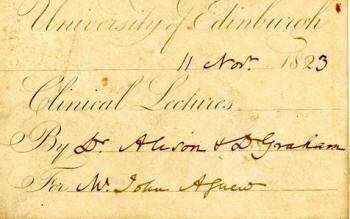
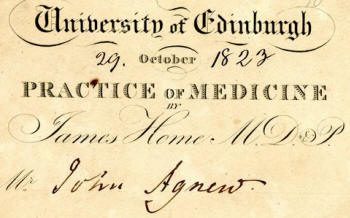
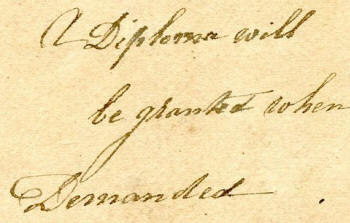
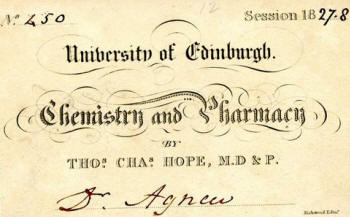
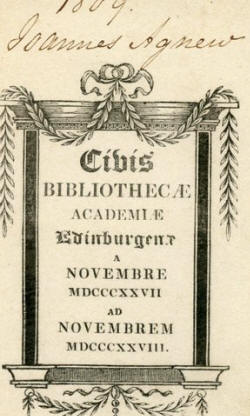
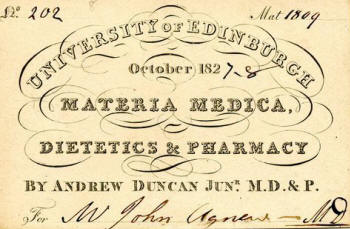
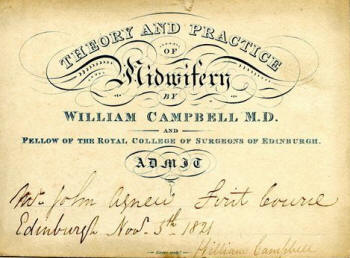
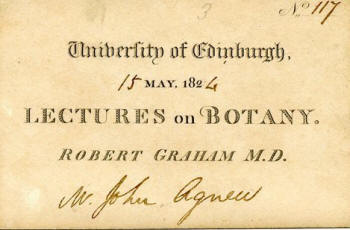
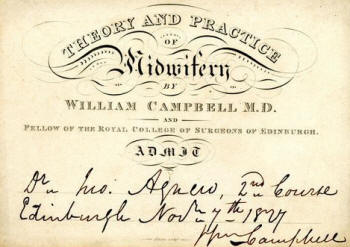
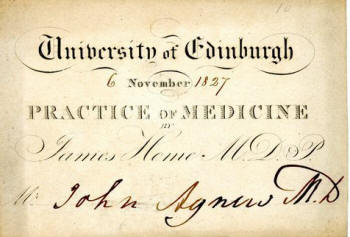
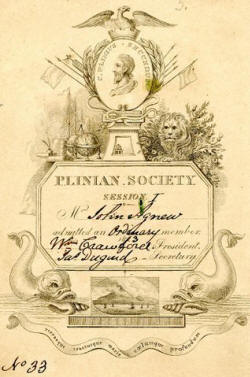
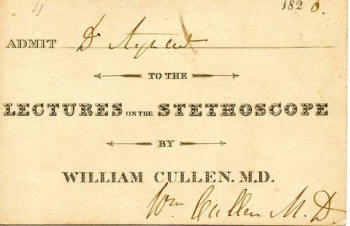
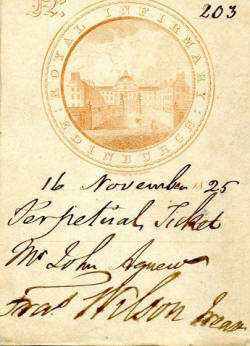
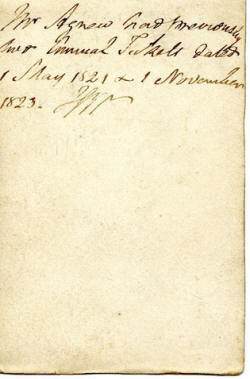
x
Hopital Enfants Malades (1824 - 1828)
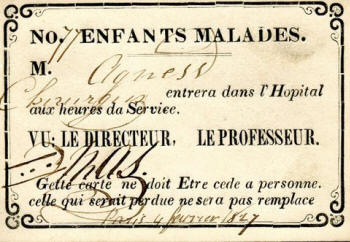
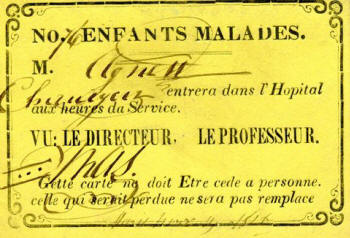
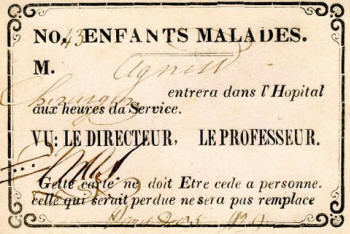
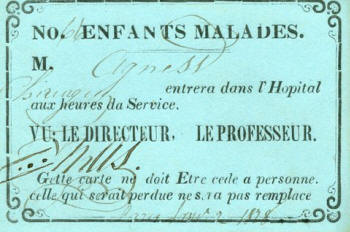
University de France (1826 - 1824)
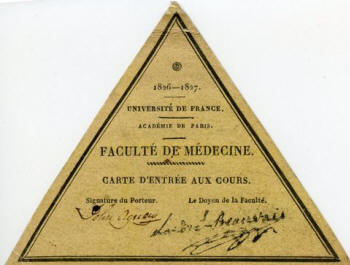
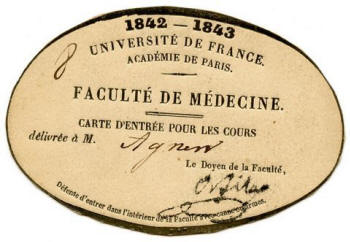
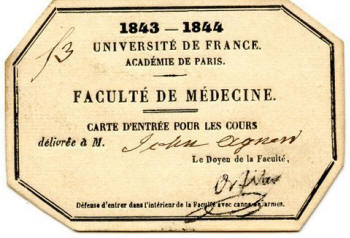
Hopital Hotel-Dieu (1826 - 1848)
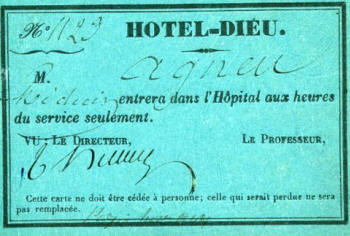
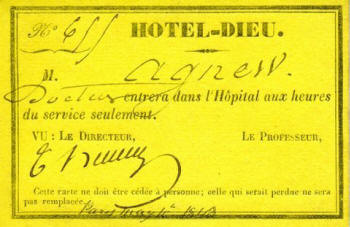
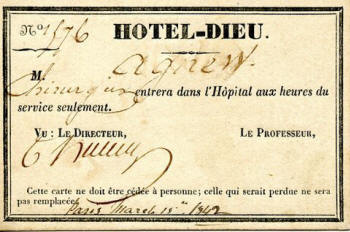
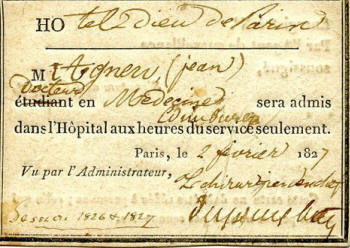
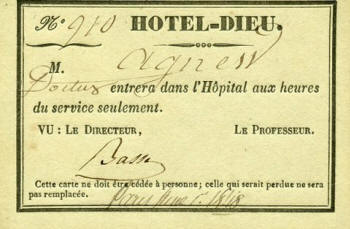
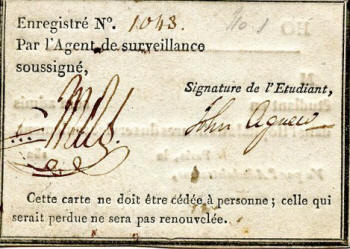
B
Hopital Bicetre (1841 - 1844)
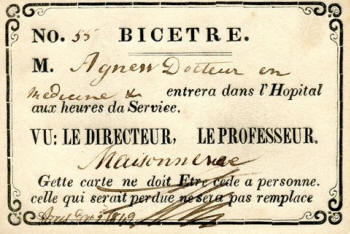
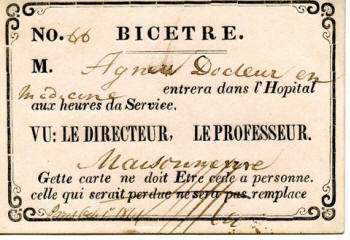
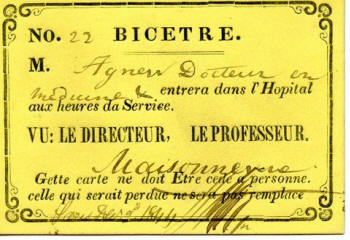
c
Hopital La Maternite (1842 - 1845)
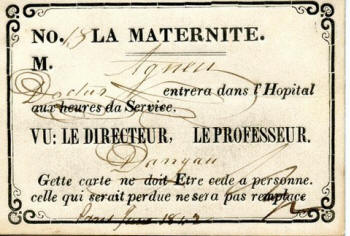
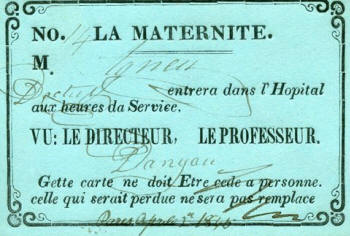
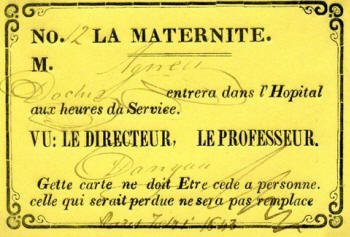
Hopital Charenton (1845 - 1848)
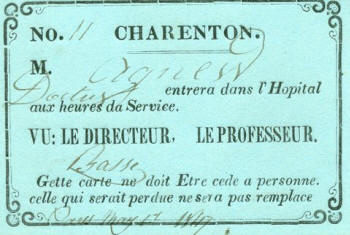
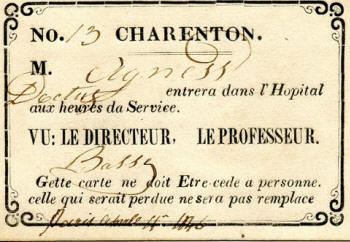
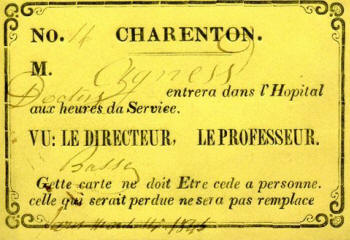
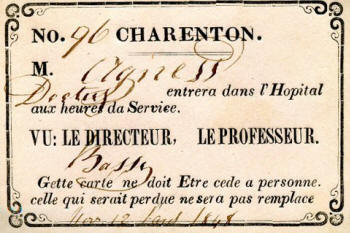
Hopital La Saltpetriere (1842 - 1844)
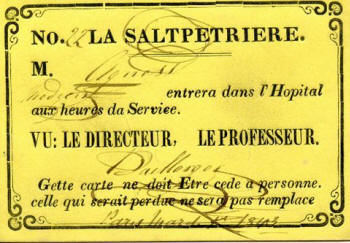
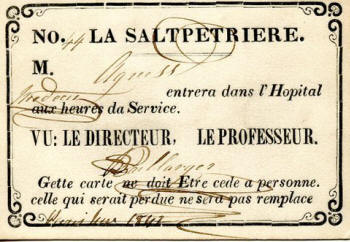
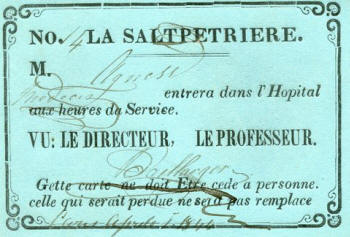
Hopital Necker (1844 - 1846)
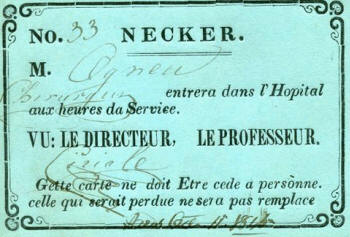
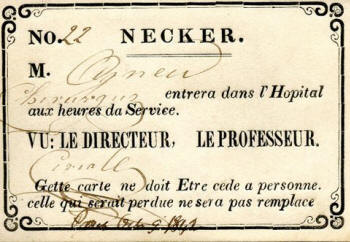
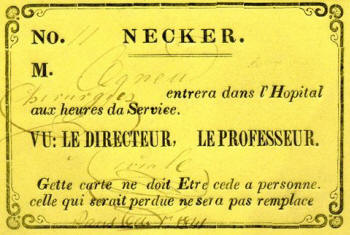
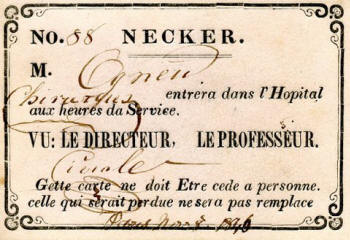
Hopital Saint Louis (1842 - 1845)
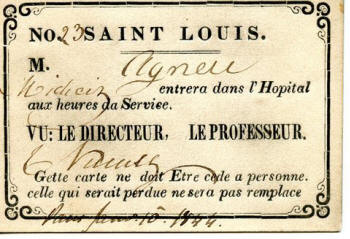
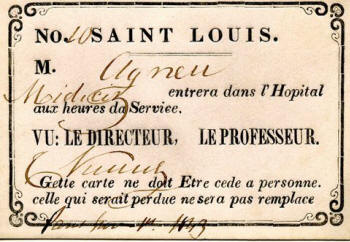
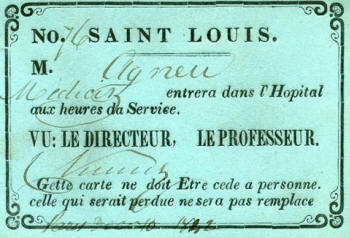
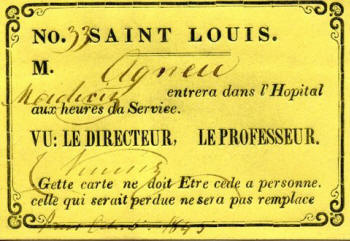
Hopital Veneriens (1842 - 1845)
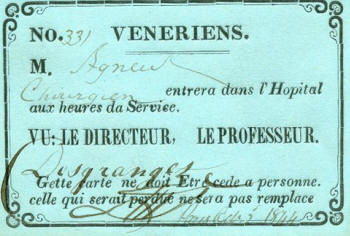
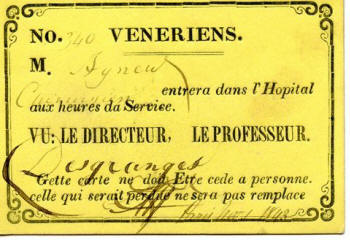
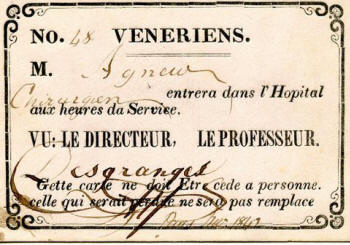
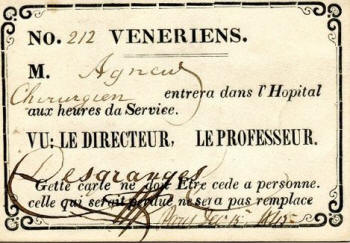
Various documents from the desk of Dr. John Agnew
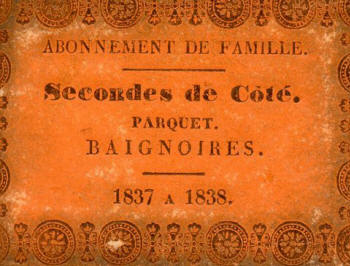
Dr. Agnew's 1856 bank ledger and expense accounting
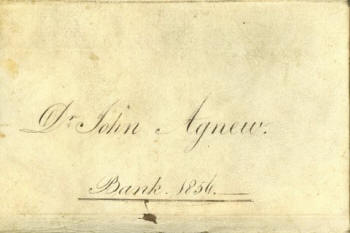
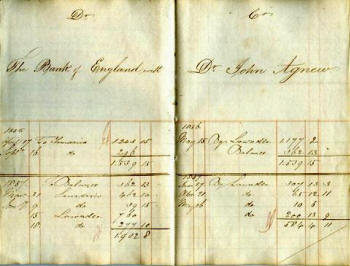
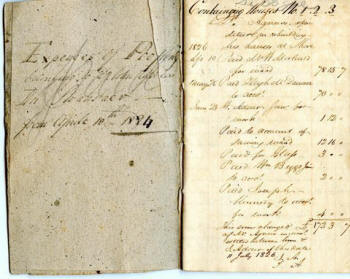
Dr.
Agnew's family tree
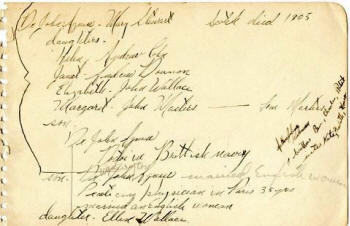
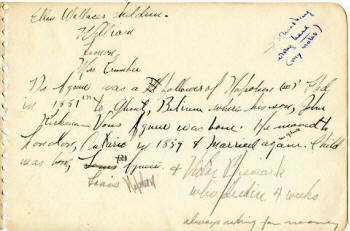
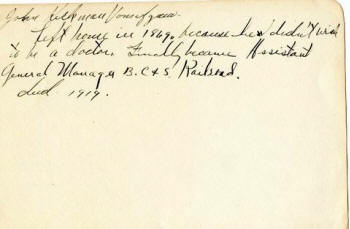
Dr. Agnew's Ministerial Ordonnance and a letter to the
public
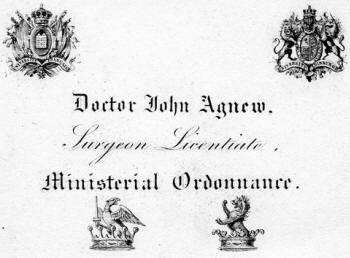
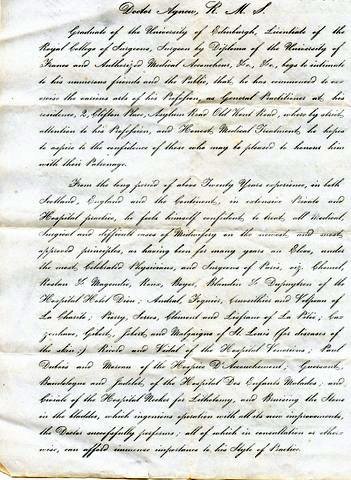
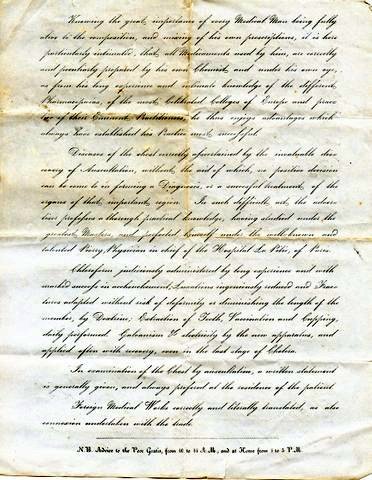
Next page:
1b
Lecture Card Collection..:
1a |
1b | 2 | 3
| 4
|
5
|
6
|
7
|
8
|
9
|
10
|
11
|
12
|
13
|
14
|
15
|
16 |
17
|
18 |
19 |
20
|














































































